Google Pixel 8 Pro might change our relationship with photography
The Google Pixel 8 Pro phone goes all out to inject generative AI abilities into this essential everyday object
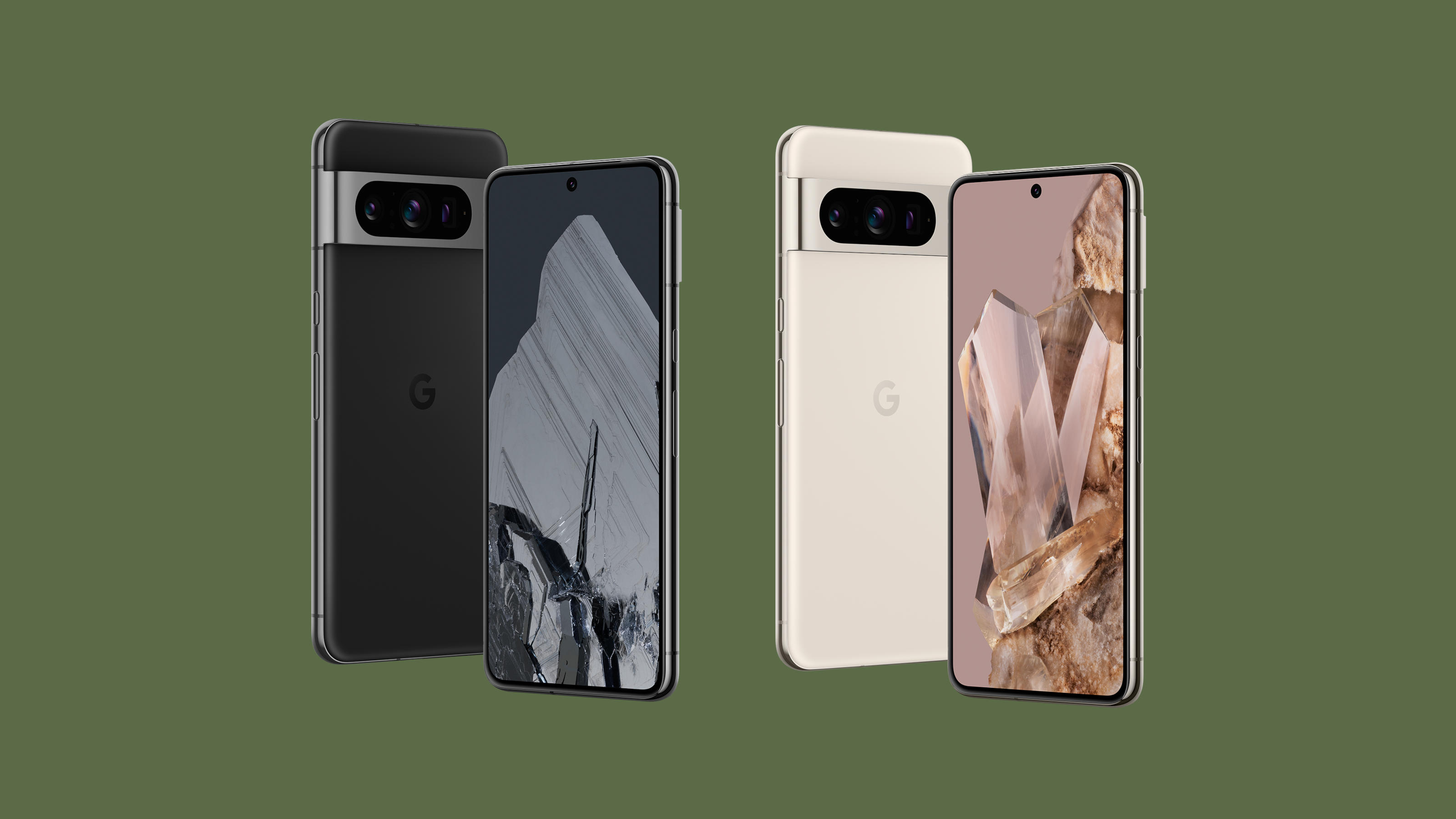
Have we reached peak smartphone? The premium brands have had their annual launches – such as the Samsung Galaxy S23 and the Apple iPhone 15 – and offer only incremental improvements on what was available the previous year. Now it’s Google’s turn, with the debut of the Google Pixel 8 and Pixel 8 Pro.
What’s most notable about the eighth iteration of the company’s flagship Android device is how AI has become much more embedded and present. Google’s AI systems have sneaked their way into search as well as generative systems like text and image generation, not to mention photographic ‘support’.
Google Pixel 8 Pro and its AI revolution
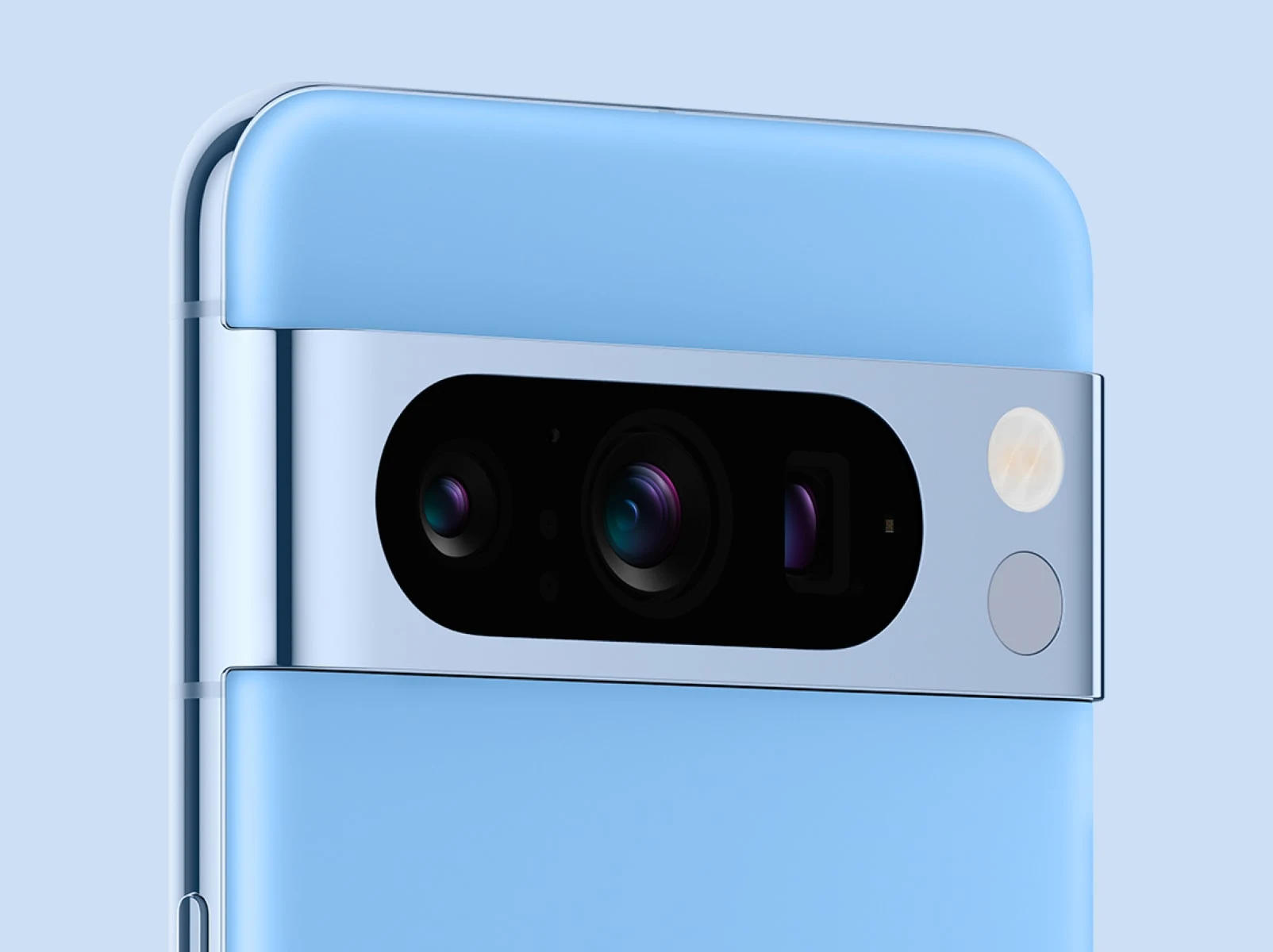
The Pixel 8 Pro has four cameras in total
It’s the last where the Pixel has traditionally excelled, but while the latest version takes fantastic photographs, it feels that the emphasis is shaping the world one sees, rather than displaying it as it is. Apple’s equally impressive photographic capabilities are pitched more at the traditional photographer, someone who will process after the shoot, rather than use the rather cruder tools in the phone itself. iPhones have been able to shoot RAW files for a while, whereas it’s a new option on the Pixel 8 Pro.
A smartphone isn’t a camera, of course, but a very sophisticated image processor. ‘Pro Controls’ aside, both of the Pixel 8 phones have a suite of AI-driven tools that are designed to buff out the rough edges of life. The Pro has four cameras, including a 50 MP main camera, an ultrawide, telephoto and 10.5 MP front camera. Photographic results can be shaped using ‘Best Take’, which blends a burst of similar images to ensure that everyone is smiling, or not blinking.
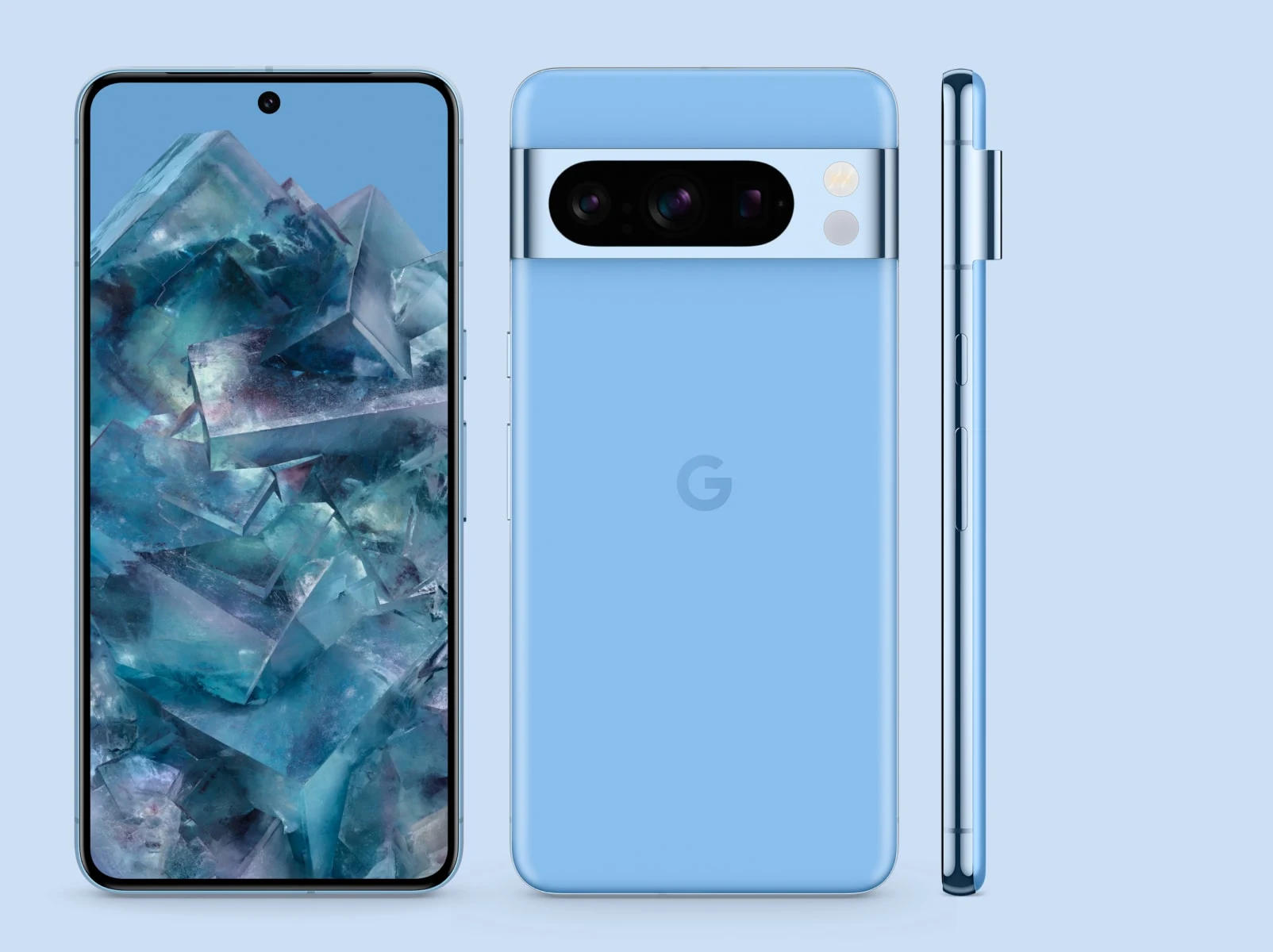
With its polished aluminium frame, the Pixel 8 Pro is a beautifully made device
There’s also the forthcoming Magic Editor (unavailable at time of review), something Google describe as an ‘experimental editing experience’. This builds on the Magic Eraser tool introduced in the Pixel 7 phones but doesn’t just allow for stray photobombers to be seamlessly and automatically banished. Instead, you can apparently reposition objects within the frame, change an overcast sky to a dramatic sunset and inflict all manner of trickery on even the most casual snapshot.
It begs the question, what next? This will be an experimental feature, with the computations presumably taking place in the cloud (hence recent warnings about the burgeoning energy consumption of relatively trivial AI applications). Google is prefacing the feature with a warning, acknowledging that ‘… we know there are going to be times when the result isn’t exactly what you imagined’. This conjures up a potential hellscape of twisted AI fingers and unwanted excursions into the uncanny valley, all taking their place in your precious photo folder.
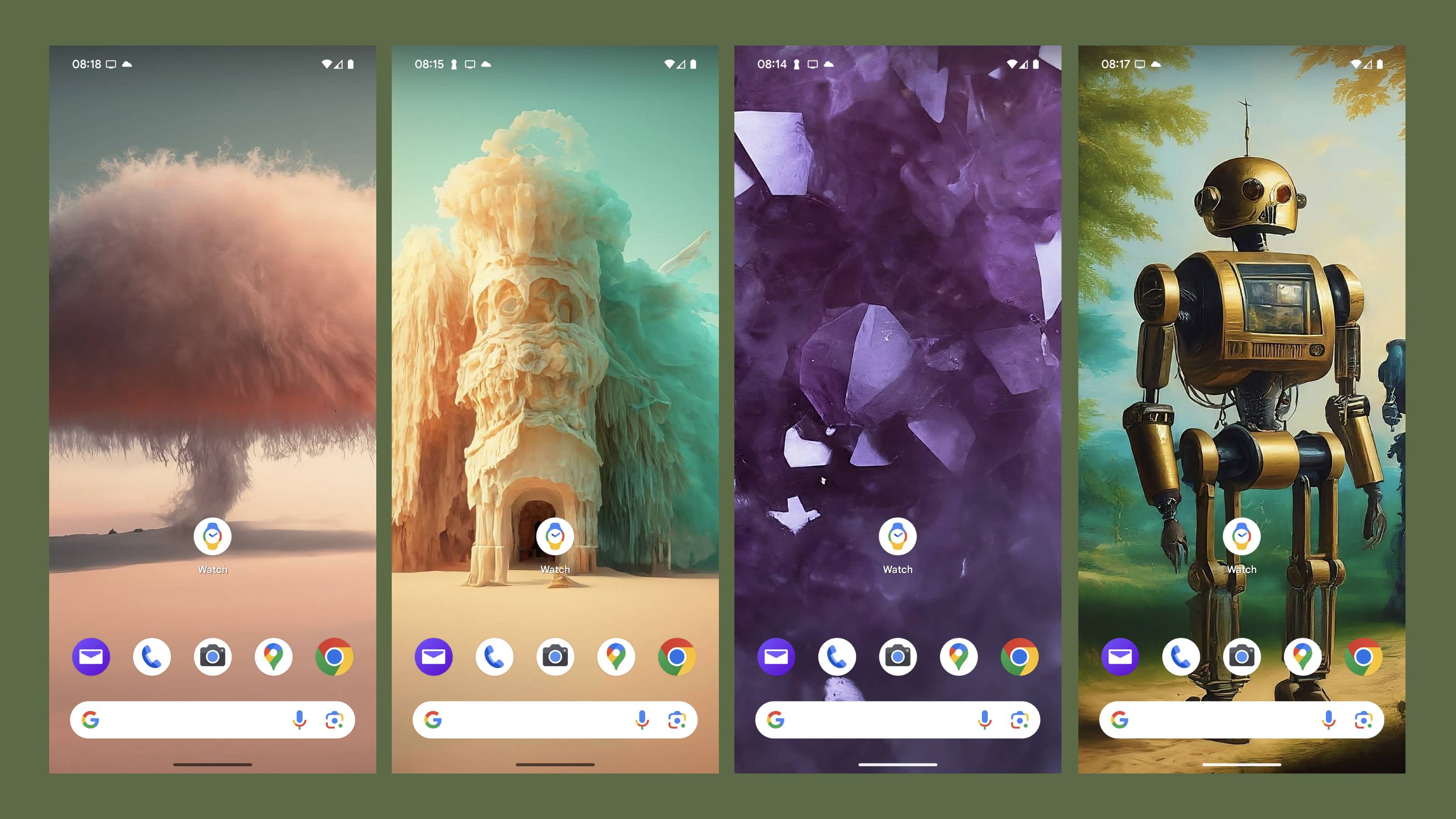
AI-generated wallpapers offer bespoke unique imagery
Also available is a slightly gimmicky AI-generated wallpaper app, which conjures up backdrops based on a set of pre-loaded cues. Promised this week are even more AI-driven features, including Zoom Enhance, which lets you zoom into a photograph and use generative AI to sharpen up the details; a more flexible and powerful Magic Eraser tool, and the introduction of Audio Magic Eraser, which is designed to ‘clean up’ buzzy and blowy video soundtracks. More alarming still is the imminent arrival of Google’s conversational AI model, Bard, which can be used to generate descriptions, social media posts and other potential nuisances.
Receive our daily digest of inspiration, escapism and design stories from around the world direct to your inbox.
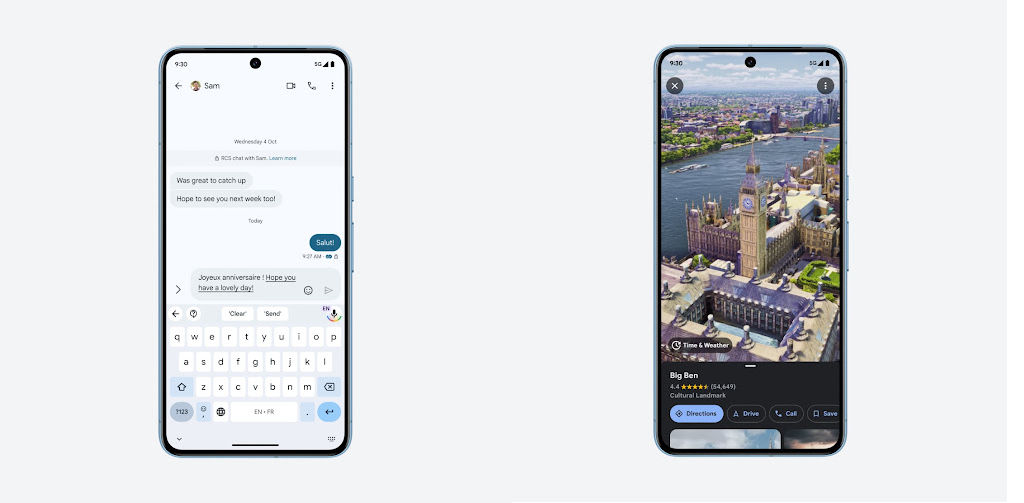
Google Pixel 8 Pro
The AI feature creep notwithstanding, this is properly premium device, especially the Pro model. A polished aluminium frame and matte back glass support a 6.7in screen, making it a fraction larger than the iPhone 15 Pro Max. If you can face covering this beautifully finished device with a case, then your Pixel 8 will undoubtedly last a while; another quiet advance is the fact that the Pixel 8 comes with seven years of software support, guaranteeing you software and security updates until October 2030. Pixel 7 Pro owners can say goodbye to new software from October 2025.
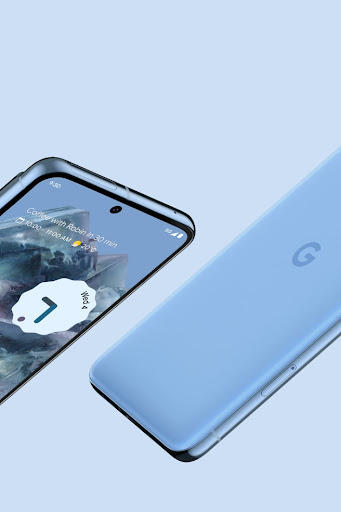
Google Pixel 8 Pro
This projected longevity brings us back to the first question; have we reached the point where always opting for an annual (or even biannual) update is simply too resource-hungry. It’s true that used phones cascade down through the second-hand marketplace for years, but the Pixel is very far from being a simple device to repair (although Google has promised to keep a stock of spare parts for seven years as well). It’ll be interesting to see how many buyers can hold on to their Pixel into the 2030s.
The devices ship with the new Android 14 operating system, a stealthy upgrade that makes sure to flatter the required muscle memory and physical interactivity of previous versions so as not to put anyone off. Also new to market is the Google Pixel Watch 2, which majors in bolstered fitness and health tracking, along with better speed and battery life.
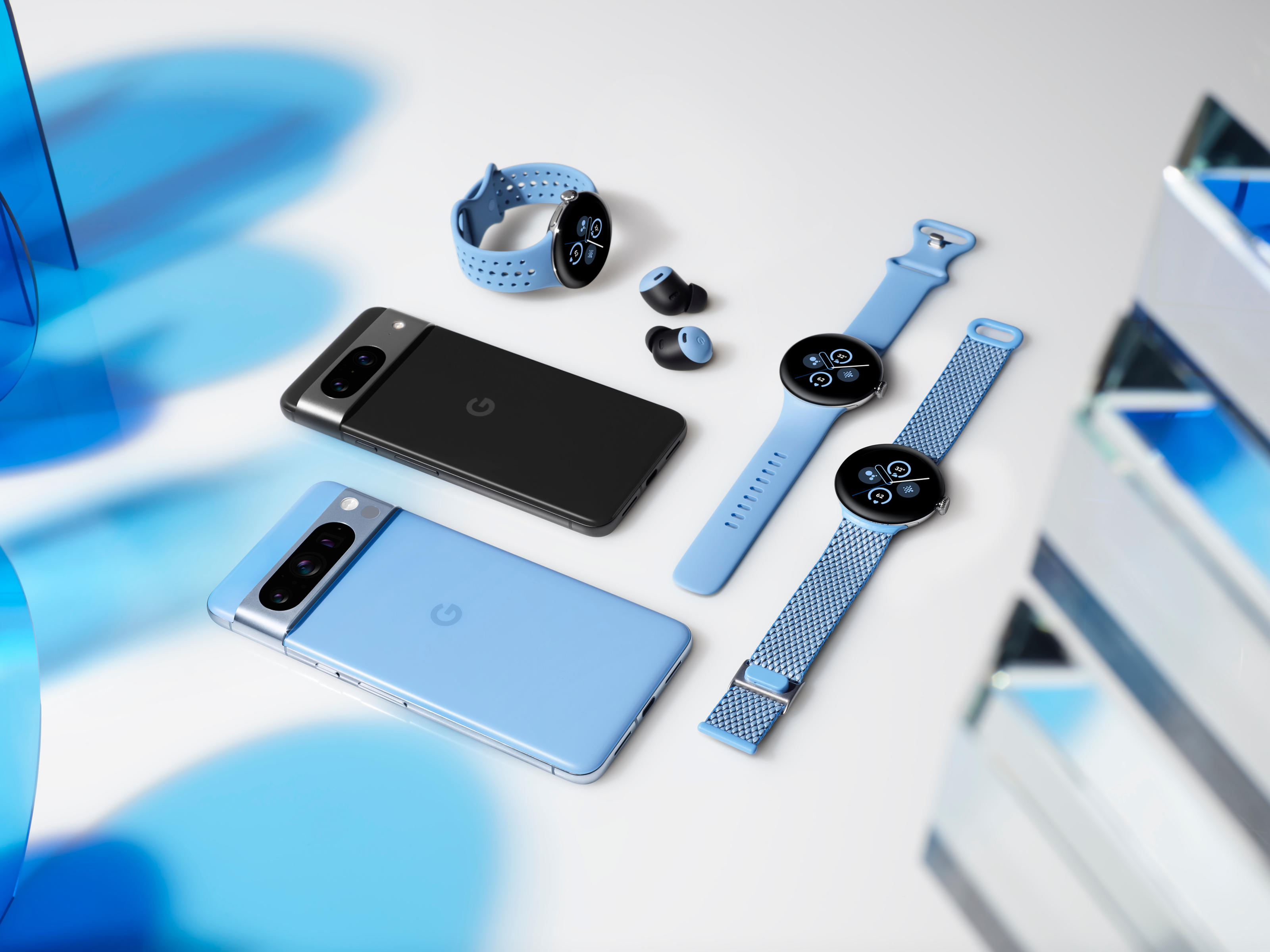
The complete suite of new Google Pixel products, October 2023
Surprisingly, the Pixel range has a relatively small share of the overall phone market (about 5 per cent), especially given Google’s huge sway and overall control of the Android OS. It is undoubtedly a fantastic device, fast and powerful, and rich with features. However, it also offers the very first interaction with generative AI for huge numbers of people, potentially adding yet another layer of confusion and distraction to an already over-saturated world.
Google Pixel 8 Pro, from £999, Store.Google.com
Jonathan Bell has written for Wallpaper* magazine since 1999, covering everything from architecture and transport design to books, tech and graphic design. He is now the magazine’s Transport and Technology Editor. Jonathan has written and edited 15 books, including Concept Car Design, 21st Century House, and The New Modern House. He is also the host of Wallpaper’s first podcast.